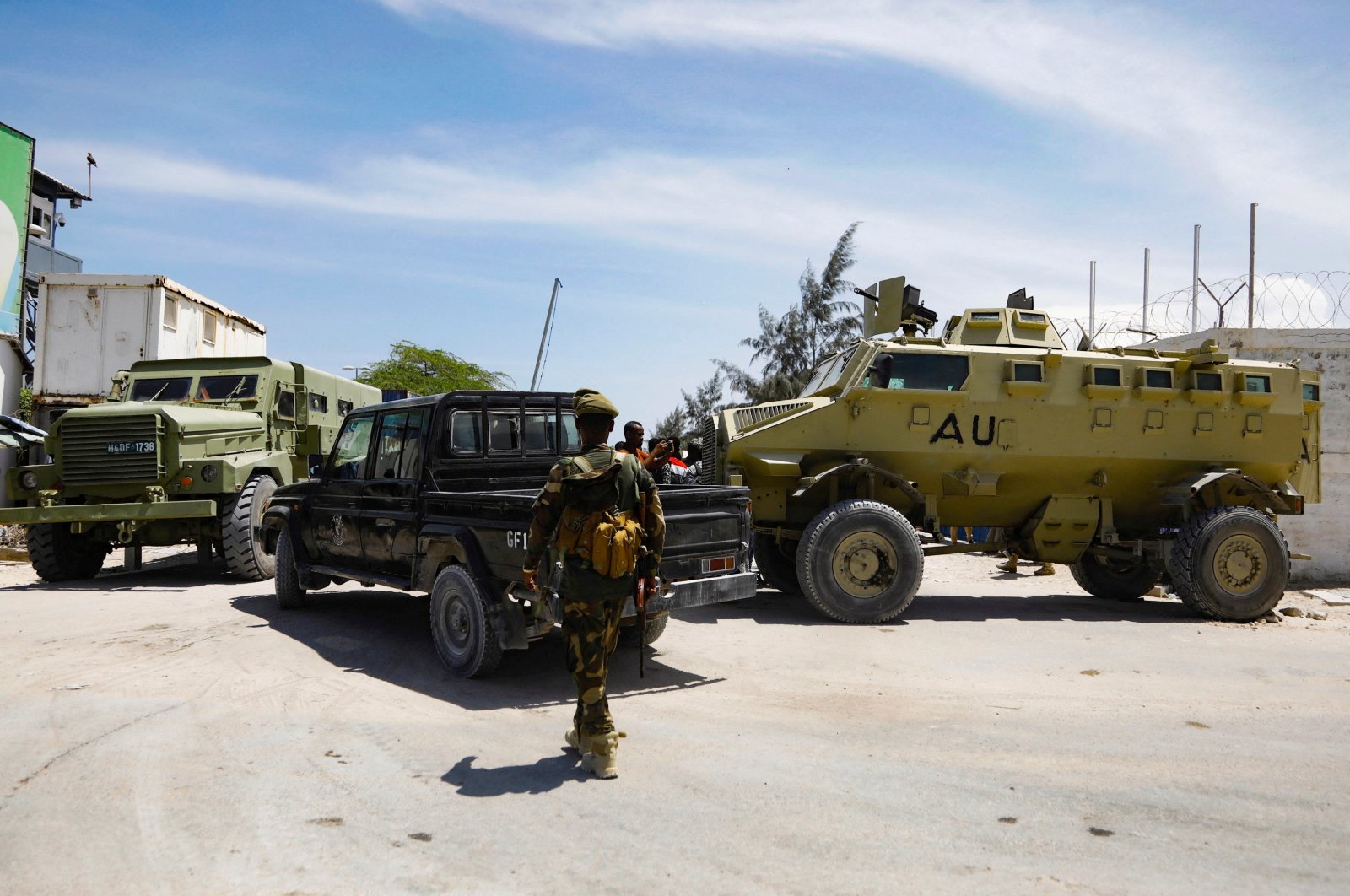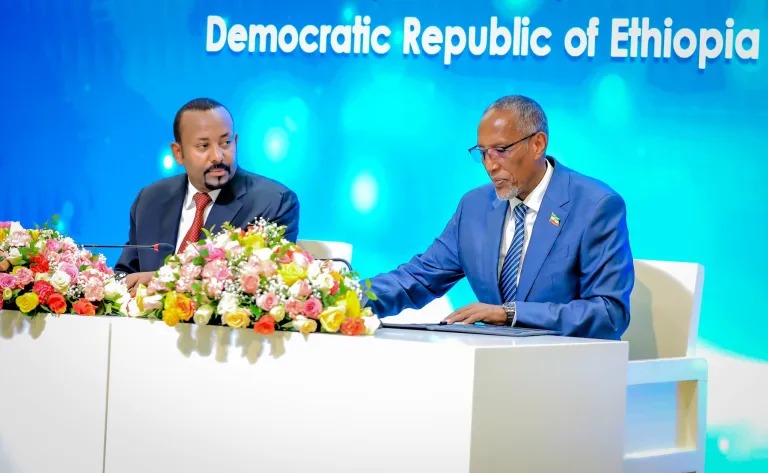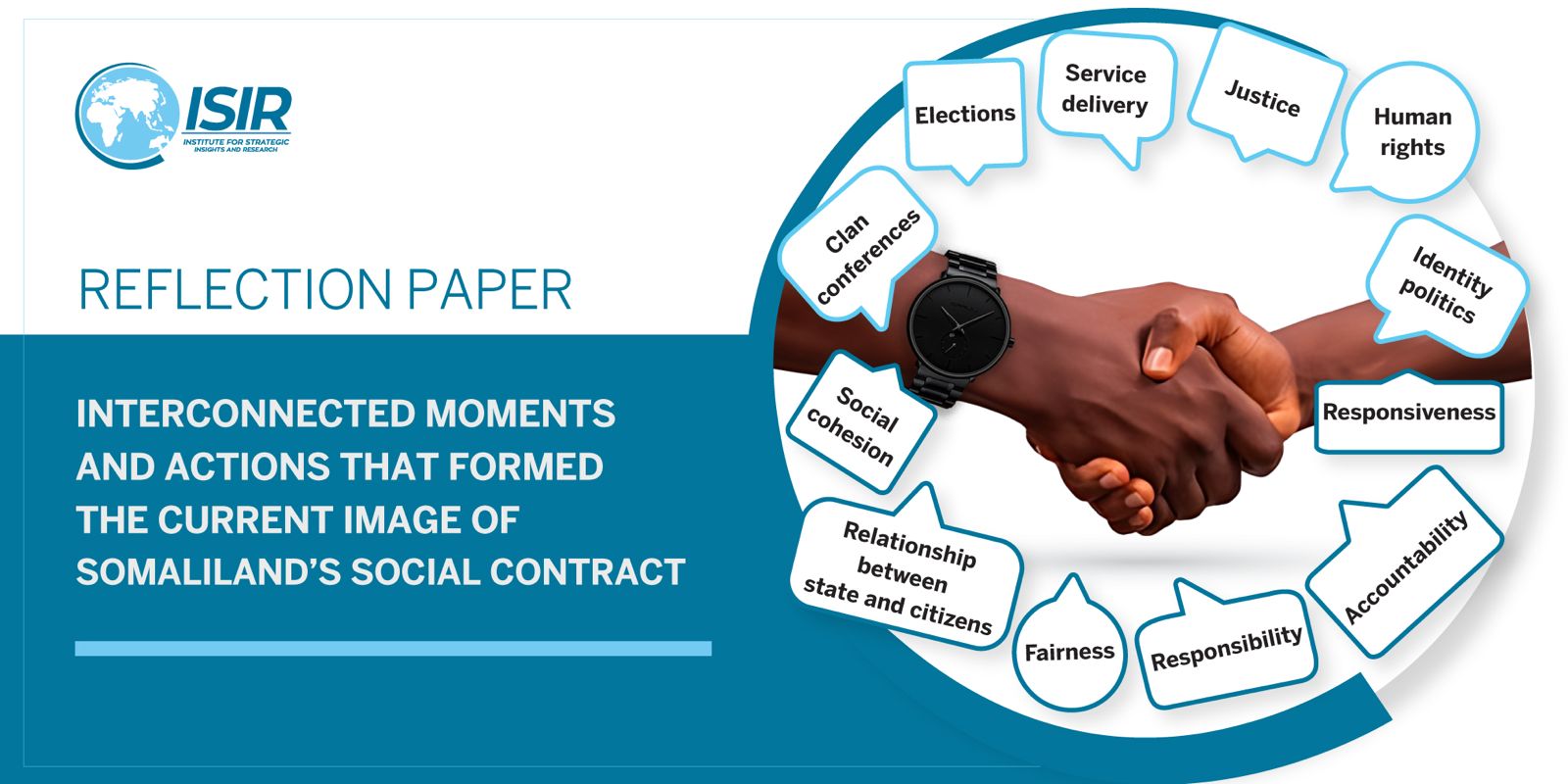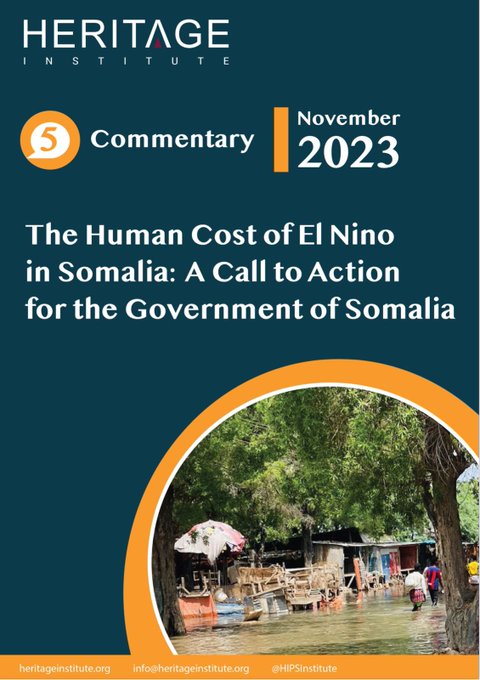The Somali government needs to invest in intelligence more than ever before. They need to be well-trained, well-equipped, well-funded, and removed from all political agendas.
Somalia has a newly elected government after its long-delayed presidential election, ending the convoluted electoral process that heightened tensions across the fragile East African nation for the past couple of years. The electoral process was complicated by a set of delays, an ongoing struggle between the central government and primarily two key member states in the Somali Republic, and an ongoing struggle for power between the president and his prime mister. Nevertheless, Somalia has finally held its presidential election where Hassan Sheikh Mohamud (HSM) became Somalia’s President for the second time. President Hassan Sheikh Mohamud has also appointed lawmaker Hamza Abdi Barre as the country’s next Prime Minister. This new leadership in Somalia will be determining the path the country will take on several crucial policy issues including, but not limited to, foreign policy, looming famine, economy, and the fight against al-Shabaab.
It is not a surprise that Somalia’s No. 1 challenge will continue to be security. Somalia suffers from multiple broad categories of security challenges, ranging from tensions between Somali authorities (federal and regional states) and extremist terrorist organizations, notably al-Shabaab, the Islamic State in Somalia, and more recently, paramilitary groups and militias such as Ahlu Suna Waljamaaca.
Despite failures and setbacks Somalia has come a long way and has made some incredible progress both in political and security sectors since the collapse of the Somali government in 1991; however, the work is not finished, Somalia still faces mounting challenges and threats from terrorist groups, and these threats have become more complex, more intertwined, and more deadly for Somalia. As the threats of al-Shabaab evolve, the government must also evolve as well. In this article, I provide 10 policy recommendations for Hassan Sheikh Mohamud and the newly elected Somali government to sustainably combat the threat of al-Shabaab.
Recommendations:
- Somali Solutions for Somali Problems: Somalia for the past couple of decades has relied on national security frameworks and security architectures designed or influenced by international partners, and the result has been disastrous and ineffective. The Somali people must come together to take responsibility for their national security. The Somali government needs to host a series of national conventions to design, develop, and inspire a national security strategic plan developed, implemented, and sustained by Somalia. This gives the government a sense of ownership, responsibility, and accountability for its national security strategies and priorities.
- Empowering and investing in the National Intelligence and Security Agency (NISA): One of the most important elements of a government’s counterterrorism efforts is to gather intelligence regarding those who are plotting and perpetrating terrorist acts against it. A nation’s intelligence agencies are usually the first line of defense when it comes to the national security threats both from domestic enemies and foreign enemies, and the stronger a nation’s intelligence agencies are the more secure its citizens will be. The Somali government needs to invest in NISA more than ever before. They need to be well-trained, well-equipped, well-funded, and most importantly removed from all political agendas and disputes so they can focus on protecting the nation from its foreign and internal adversaries.
- Strengthening Interagency Coordination: The Somali government needs to establish a national security interagency coordination workgroup or committee within its security sector. The many security agencies and their structures, planning processes, funding sources, and intelligence can hinder interagency collaboration. We have seen al-Shabaab take advantage of disorganized information-sharing and awareness between security departments in Somalia. This interagency coordination working group should be sharing national security information, intelligence, best practices, and resources for a better and more effective counterterrorism strategy.
- Countering Financial Sources for al-Shabaab: The Somali government needs to cut off the financial sources that al-Shabaab has been operating for the past decade. They have built up an extensive racketeering operation, with checkpoint taxation on illicitly traded charcoal, import and export taxation at Somali ports, and large and small business taxation. These sources and much more have brought tens of millions of dollars for the group to help their recruitment and sustainability to carry out their operations. It’s the government’s responsibility to cut off those financial sources to ensure national security.
- Using Education as a Tool to Combat Extremism: The Somali government must understand that what’s far more strategic than fighting al-Shabaab on the battlefield is educating the young minds that are vulnerable to recruitment by these extremist organizations. The focus should be on combating the narrative and winning hearts and minds through education. Can you imagine a nation that faces terrorism as its most significant threat while its schools and universities do not provide education that is focused on national security? The Somali ministry of education needs to prioritize the teaching and embedding of a curriculum focused on combating extremism and help develop the next generation of Somali national security leaders.
- Take Politics Out of The Security Sector: To effectively reform the security sector in Somalia, the government needs to remove politics and especially the destructive 4.5 clan system from its security sectors. The security sector should rely on merits and competent leadership that has experience and understanding of national security; they should not be recruited based on clan representation. Additionally, the Somali armed forces should only be utilized to secure the national security of the nation and not to intimidate rivals, federal member states, or political figures, or be used for personal reasons.
- Be Consistent in National Security Leadership: The Somali government is notorious for constantly changing leadership in its security sector especially after a new administration comes to power. There are institutional consequences of having too much change. Consequences of change saturation for the institution include higher turnover, a decline in productivity, increased absenteeism, loss of focus on strategy, and negative morale. Constantly changing security sector leadership believing it will improve national security is misguided and disastrous. Those who are qualified and experienced in national security should be kept serving in every administration because their job should not be political but rather national security.
- Strong Vetting System for Security Sector and Parliament: The Somali government needs to create an accurate system or process for vetting and identifying al-Shabaab members and informants both within the security sector and other branches of the government including parliament. For the past decade, al-Shabaab has been strategic in placing individuals within these institutional structures to carry out their missions and government infiltration.
- Developing Equitable and Sustainable Judicial System: When governments embrace international human rights norms and standards, promote good governance, uphold the rule of law, and eliminate corruption, they create an enabling environment for civil society and reduce the appeal of violent extremism. Al-Shabaab thrives on recruiting members of society who have been denied justice and public resources or whose decency and rights have been violated. The Somali government needs to develop a judicial system that is fair and equitable to all its citizens in order to combat al-Shabaab. The Somali people require a governance system in which all members of society, institutions, and entities, public or private, are accountable to laws that are publicly promulgated, equally enforced, independently adjudicated, and consistent with international human rights norms and standards.
- Strategic Communications and Counternarratives: The manipulative messages of al-Shabaab on social media have achieved considerable success in luring Somali youth into their ranks. While violent extremists have demonstrated some sophistication in their use of old and new media tools, it is equally true that the government and civil society who reject their message have largely failed to communicate and develop effective counternarratives to the online recruitment of al-Shabaab. The Somali government needs to improve its partnerships between civil society organizations and government agencies to empower communities to develop a counternarrative to al-Shabaab narratives and amplify the alternative message through all forms of media and Somali arts and culture.
By Mohamed Ahmed
Mohamed Ahmed, Ph.D. is the Chief Diversity Officer at Alliant International University and a Professor of Counterterrorism in The San Diego State University Homeland Security Graduate Program. Dr. Ahmed is also the Director of Strategic Initiatives & Community Programming at the American Counterterrorism Targeting and Resilience Institute (ACTRI).
Categories: Opinion













